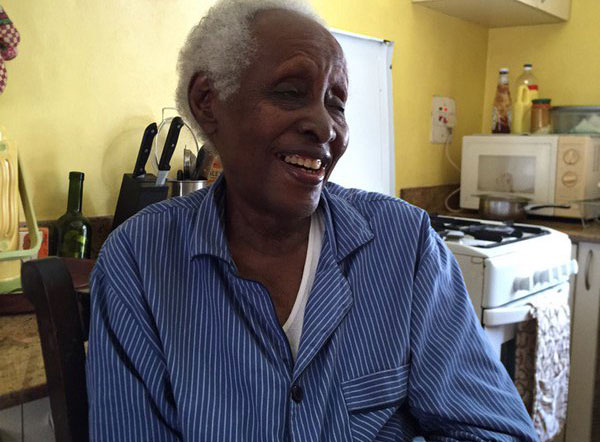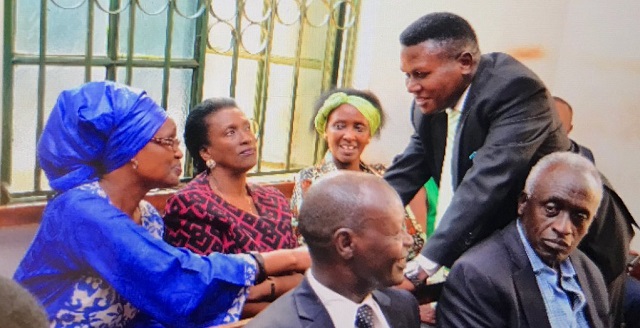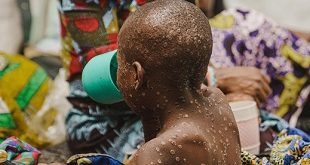
What Uganda’s current and future politicians can learn from the life and character of Mzee Byanyima
Although I knew he was old (at 96) and was aware of his declining health I was still shocked when I heard the news of the death of Mzee Boniface Byanyima. I have since been trying to frame my impressions of this giant of a man. I knew him very well. I used to visit him at his home in Ruti, Mbarara, sometimes spending Christmas or Easter holidays there. At other times I would be driving through Mbarara and pass by him at his home, even spend a night to talk and listen to his wisdom and experience.
During these visits, I would spend hours with him, asking questions about Uganda politics and his relations with some of the giants of our post-independence era – Bendicto Kiwanuka, Milton Obote, Idi Amin, Basil Bataringaya, Grace Ibingira and Yoweri Museveni – all of whom he knew well and had related with at close range. Indeed, his daughter, Edith Byanyima, had severally suggested to me that I should record him and write a book about his life and views, a job I never did.
Mzee Byanyima was a stubbornly principled person, a factor everyone who knew him recognised. But I am also aware that some people would like to use his principled stand in defence of what he believed to draw conclusions to suit their political agendas. Having spent many hours talking to him over a long period of time (from the late 1990s and the early 2000s), I learnt that he never personalised political disagreements.
During the 1960s, he was a Member of Parliament (MP) on the Democratic Party (DP) ticket. Many DP MPs crossed over to the ruling Uganda People’s Congress (UPC) led by Milton Obote. Mzee Byanyima remained among the only four opposition MPs by the time of the January 25, 1971 coup led by Idi Amin. During this period he put up a spirited fight against what he saw as the excesses of the UPC government, yet he never held a personal grudge against Obote, who was president of the country.
During my visits and discussions with him, he was critical of Obote’s politics and policies but never went personal against the former president. On the contrary, Byanyima always told me that Obote was a nationalist who had indulged in wrong politics and pursued bad policies. At a personal level, Byanyima would tell me that Obote was actually a friend. Sometimes after a day of acrimonious debate in parliament, they would retire to Uganda Club where they would sit together to talk – Obote drinking wine, Byanyima drinking soda. I found this intriguing.
I used to visit Obote during his long exile in Lusaka, Zambia and we would talk about Mzee Byanyima. Obote confirmed everything Byanyima had told me about their relationship. Thus, whenever I visited Obote, he would send greetings to Byanyima and vice versa. On more than one occasion, I visited Mzee Byanyima and then called Obote in Lusaka and they talked on my phone. I would sit back and smile in silent wonderment at his expression of political maturity that is rare today.
I learnt from his relationship with Obote that you could disagree with a president without being disagreeable
I have almost 36 hours of autobiographical interviews with Obote and I asked him about Byanyima. An extract of his comments was published in Daily Monitor just before Obote died in October 2005. “He is a very good friend,” Obote told me of Mzee Byanyima, “because he is an honest man. I still wonder why a man of such great principles remained in DP. He really belonged to UPC. It is in UPC that you find men like Byanyima. He was lost in the DP. He is a good man.”
Obote’s respect for Mzee Byanyima in spite of their political and policy differences is illustrated by yet another significant event. On May 27, 1980, Obote returned from exile in Tanzania, landing at the airstrip in Mbarara and drove directly to Ishaka, Bushenyi, where he held a huge welcome rally. After the rally he drove back to Mbarara and spent a night. And guess whom he invited for dinner that evening? Mzee Byanyima! They ate and talked, reminiscing about Uganda’s turbulent period under Amin.
That Obote felt it important to invite Byanyima for dinner on his first day in Uganda after nine years in exile instead of the many UPC stalwarts from the district speaks volumes about the two men and their mutual respect in spite of (and may be also because of) their political, policy and ideological differences. But it is also an indication of how much Uganda has changed. Today, political differences are seen as personal animosities and policy disagreements are treated as personal conflicts. Yet if there is a lesson from the life of Mzee Byanyima, it was the demarcation between the political and the personal.

In my many and long discussions with him, he would tell me of how even Amin, while driving to Kabale, would once in a while stop over at his home for a chat. Given the impression we have of Amin as an evil man, this came as a surprise to me. Byanyima was very critical of Amin’s government and its actions. But not once during my many and long discussions with him did he attack Amin personally. He would criticise his politics and policies and the actions of the intelligence services and the army but never the man.
It is through these interactions with Mzee Byanyima that I learnt slowly key principles that I always aspire to uphold. I learnt from his relationship with Obote that you could disagree with a president without being disagreeable. You could appreciate positive qualities in a president without necessarily endorsing his/her rule. It is possible to work with a president for the good of the nation without working for him. Finally, I learnt that you could compromise with a president without being compromised by him.
Mzee Byanyima did all this with Obote and set an example that we have failed to emulate. He was a unique politician who defended his principles with passion and dedication but did not hold personal grudges against those he disagreed. He was also unique because he never took a political position so that he can be loved by the masses or be accepted by those in power. On the contrary he sought clarity, not reputation and engaged in politics in pursuit of his values not in a quest for power.
****
amwenda@independent.co.ug
 The Independent Uganda: You get the Truth we Pay the Price
The Independent Uganda: You get the Truth we Pay the Price




And what did he say about Museveni in your private conversations whom he has been harshly critical of- personally and politically-over the years in public media. For example he has variously described Museveni as dishonest( hence he advised his daughter against marrying him); he has blamed him for personally ordering for dispossession of his private ranch. My point being, your description of the late as a unique politician who was capable of disagreement ideologically, but at the same time NEVER personally with political rivals seems to fall flat when it comes to his relationship with Museveni. And we know this because of his many media interviews and reports that he himself gave.
Museveni Byanyima relationship is the kind of farther son relationship….when your disappointed with your son you tell them. actually in the western culture children that turn out to be funny are disowned until they work on them selves.
Yes, as usual Mwenda conveniently forgets to tell us what Mzee Byanyima had to say about M7, just like he always does selectively use information to suit his purposes.
Dead men tell no tales, so he can conveniently quote Obote and Amin without fear of contradiction, and in this case even Mzee Byanyima.
For all the virtues that he chooses to heap on Mzee, which are true, was it not possible to pen article during his lifetime?
RIP Mzee BYANYIMA.
Ka Mwenda ako kwonka kabeiha ebishuba. How can he pour all those praises to the Mzee when he’s gone yet he always has forum and all it requires to write about people, including even writing rubbish!!
M9s article is more about what he did NOT say , than what he said.
Ugandas political history is almost what one can call a TRILOGY in that most of it is about 3 people who have greatly influenced it.
These are Obote , Amin and M7.
There is no way you can talk about Ugandas political history exhaustively without talking- not just mentioning- these 3.Likewise one can not talk exhaustively about any one of these 3 without mentioning the others.
Its like the SON, THE FATHER and THE HOLY SPIRIT.
Needless to say though, even without M9 telling us what Mzee BYANYIMA (RIP) had to say about M7, most people do know, and it is not very rosy
M9 knows which part of his bread is buttered ejakait. It is folly to offend royalty (read rulers in-fact and in-prospect) when you anticipate some years under your belt. For example M9 forgets that Mzee Boniface cautioned KB and Winnie when he was enjoining them that they should desist from politics because he more than anybody had played fair but reaped foul. Of course such inclusion in a written word can backfire when (not if) KB and KB (meaning Karagwa Byanyima or Karagwa Besigye) become tenants of State House. In my long road of life I have seen so many IMPROBABILITIES (that were very close to impossibility) become certainties like: a westerner rulling Uganda, a Mtutsi becoming president of Rwanda; a Kalenjin ruling Kenya, a black man ruling South Africa and the most unlikelihood, a black man ruling USA. Food for thought for Lawyer winnie our half-wit: What surprise is Uganda keeping under her hat?
1.Exposure at an early age to basic social services like Education,church,shelter modes one into a perfect human being thats why children who were raised in Kololo,Bugolobi,Nakasero and senior quarters for those who lived upcountry don’t easily get excited. In Uganda you can tell one who has just arrived in Kampala especially the ones from remote Buganda regions,Ankole and Kigezi regions its so easy to identify them.
2.Mzee Byanyima has proved to the world that living a decent and honest life pays you could see that at 90 his skin was still intact coz he never tasted booze.
3.I did not know that the Pajeros M7 gives the clergy really hurt Winnie Byanyima its good that Bishop Seldon Mwesigye told her to shut up.
4.It thought Besigye was going to influence Winnie to decline the state Funeral offered to her dad it was kind of them to have accepted the offer from govt.
5.The Byanyima girls thanked all their especial friends including those from the Buganda royal family.
6. When women are before their in laws they can move up and down while swinging their hips.
If at all Andrew Mwenda folliwed many speeches during thetime the good old man passed on till his burial,Most speakers urged Museveni to emulate the late Byanyima. Am sure Mwenda too is award of the fact that President Museveni takes political disagreements personal. The oment you disagree with Museveni you become an enemy…. characteristic of all dictators
M9 , ounce a journalist now a propagandist.
Had he been not he would have mentioned how Mzee, categorically advised M7 to resign.
M9 swore /paid never again to scribe balanced articles .
Political maturity is yet to be witnessed in Uganda as we speech. Individuals like Mzee Byanyima should be an inspiration to attain to those in politics. It also brings me to people centered leadership as it is not available today or somewhat frustrated. The relationship between Mzee Obote and Mzee Byanyima clearly explains why past regimes left remarkable footprints in regard to service delivery. We must emulate that.
Adhola is a very,very difficult man he made no comment on Kaweesi and Byanyima’s death may be its coz he is a traditionalist he fears the ghost may strangle him at night(ghosts were so many during the 1960’s-1970’s)